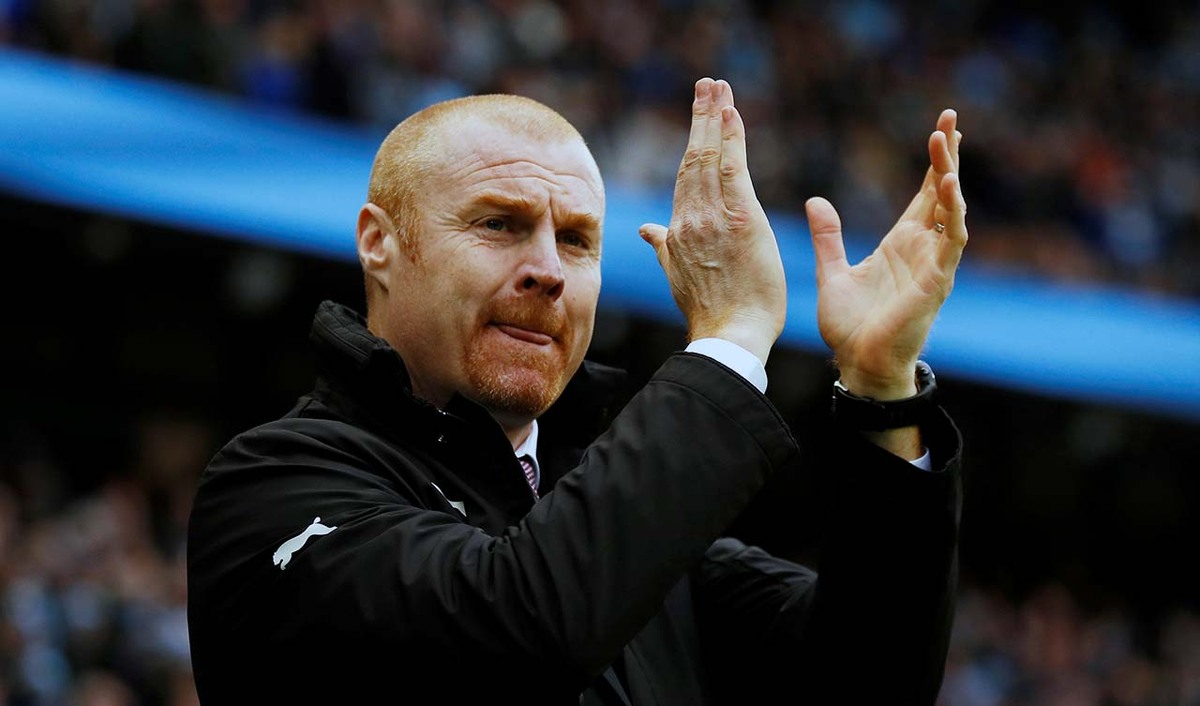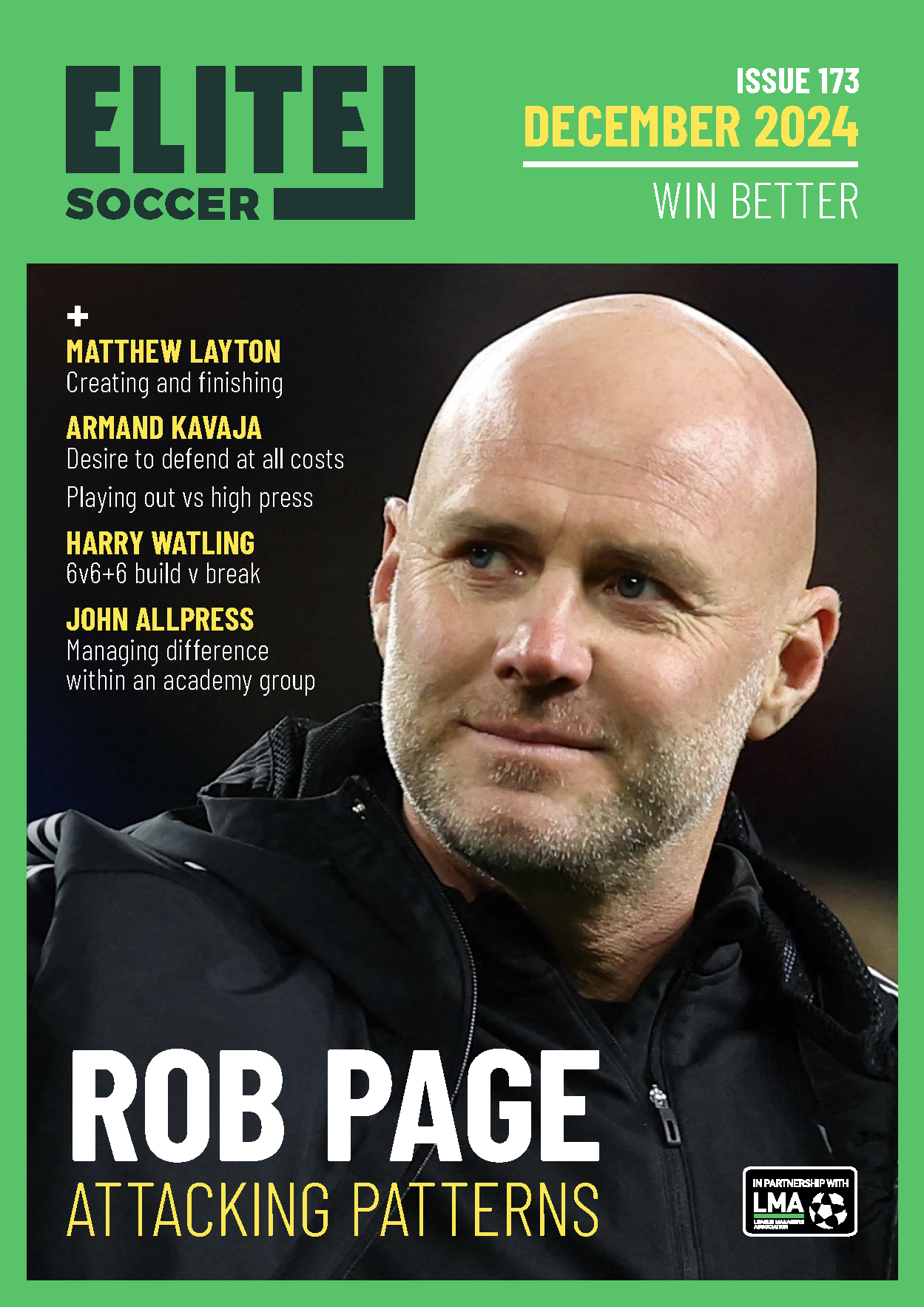You are viewing 1 of your 1 free articles
Preparing for the challenge
Elite Soccer speaks to Burnley manager Sean Dyche, a league manager of only two seasons, but a forward-thinking coach looking to impress on his players over 17 seasons of experience as a pro, having played in all three divisions of the Football League, as well as guiding unfancied Chesterfield to an FA Cup semi-final place in 1997.
After leading Watford to their highest Championship finish for four years, it was to the surprise of many in football that Sean Dyche lost his job as manager of the Hertfordshire club at the end of last season.
Rather than being disheartened by the experience, Dyche wasted no time in preparing himself for his next challenge, notably accepting the opportunity to be part of Stuart Pearce’s England Under-21s coaching staff for September’s Euro 2013 qualifier against Norway. And four months after leaving Watford, Dyche found himself back in the game as manager of npower Championship side Burnley.
So what characterises the 41-year-old’s management style?
Values and motivation
“It’s important to adapt and be flexible but you must remain true to your core beliefs. I am a big believer in values and I look to instil in others the values that I hold important to myself. You can never misrepresent the value of hard work, team ethic, pride and passion and honesty. Respect is a massive ingredient in the way that I work - respect for players, their respect for you and respect for the environment that you work in and work with.
“Ultimately, if you put key fundamentals into a group you have something that will hold them together, not just when things are good but also during challenging periods.
“You always have people who resist change and others who are flexible to change and you use the energisers wisely to get rid of the sappers if they are not going to realign with what the key fundamentals, beliefs and values are.”
Relationship with players
“There are so many different styles of management in any walk of life and it’s very much ‘each to their own’. I talk to a lot of business people and gather their thoughts on management, putting teams of people together and being efficient, and every manager will have their own angle on it. My personal angle is that I like closeness with the players, but it is a respectful closeness.
“They know that I am ‘the gaffer’, so to speak, but they also know that I am there for them. I’d be very surprised if there was a player that I’d worked with who didn’t think that I cared for him. I care for what they are about, their futures and their families because I have been down their road as a player myself, and that empathy is important.
“Obviously you can’t let your empathy get in the way of key decisions because ultimately you can only start a match with 11 players at a time.
“There’s closeness for sure, there’s definitely a professional and emotional empathy but there is that strength to say ‘I am the manager, you all know it, I know it, and I have to make key decisions.’”
An ongoing commitment to learning
“Many people told me that my time at Watford had been viewed as successful and I was proud of what I’d achieved. I didn’t come out from the experience feeling low and vulnerable, I came out from the Watford job raring to go. So I viewed my time out from management as an opportunity to add to the toolbox and continue learning.
“As well as attending conferences such as the one hosted by the League Manager’s Association, Stuart Pearce gave me the opportunity to work with the England Under-21 team, to look at everything they do. In addition, many club sides invited me in to observe, which was very valuable. I was active in the media with Sky Sports which allowed me to put across my knowledge and views and probably give a more rounded impression of what I am about and what my views are.
“People in football know what I am like but people in the media and the general public probably don’t. I had my first ever ‘normal’ summer with my family since I was 16. It was six to eight weeks with my two young children, and that was a really important time for me. So the period prior to joining Burney was a chance to reflect on what I’d done and add to it with what I could learn from others.
“At Burnley, I am looking forward to developing further as a manager. This is a fantastic club that is in some kind of transition after a spell in the Barclays Premier League, but it is clearly a club that wants to build and move forward, and I desperately want to be a part of that. I want to make sure we fulfil what we are undoubtedly capable of.
“This season, we’ve come up against a number of new challenges. The squad is evolving, and that has to be countered with expectancy from the fans to get back up into the Premier League. So in many respects it’s a juggling act between those two things. As a management team we expect patience in one respect, but just like the fans, we expect results and application in the other.”
Editor's Picks
Using the goalkeeper in build-up play
Pressing principles
Intensive boxes drill with goals
Penetrating the final third
Creating and finishing
My philosophy
Pressing initiation
Compact team movement
Defensive organisation
Coaches' Testimonials

Alan Pardew

Arsène Wenger

Brendan Rodgers

Carlos Carvalhal

José Mourinho

Jürgen Klopp

Pep Guardiola

Roy Hodgson

Sir Alex Ferguson

Steven Gerrard
Coaches' Testimonials

Gerald Kearney, Downtown Las Vegas Soccer Club

Paul Butler, Florida, USA

Rick Shields, Springboro, USA

Tony Green, Pierrefonds Titans, Quebec, Canada
Join the world's leading coaches and managers and discover for yourself one of the best kept secrets in coaching. No other training tool on the planet is written or read by the calibre of names you’ll find in Elite Soccer.
In a recent survey 92% of subscribers said Elite Soccer makes them more confident, 89% said it makes them a more effective coach and 91% said it makes them more inspired.
Get Monthly Inspiration
All the latest techniques and approaches
Since 2010 Elite Soccer has given subscribers exclusive insight into the training ground practices of the world’s best coaches. Published in partnership with the League Managers Association we have unparalleled access to the leading lights in the English leagues, as well as a host of international managers.
Elite Soccer exclusively features sessions written by the coaches themselves. There are no observed sessions and no sessions “in the style of”, just first-hand advice delivered direct to you from the coach.





